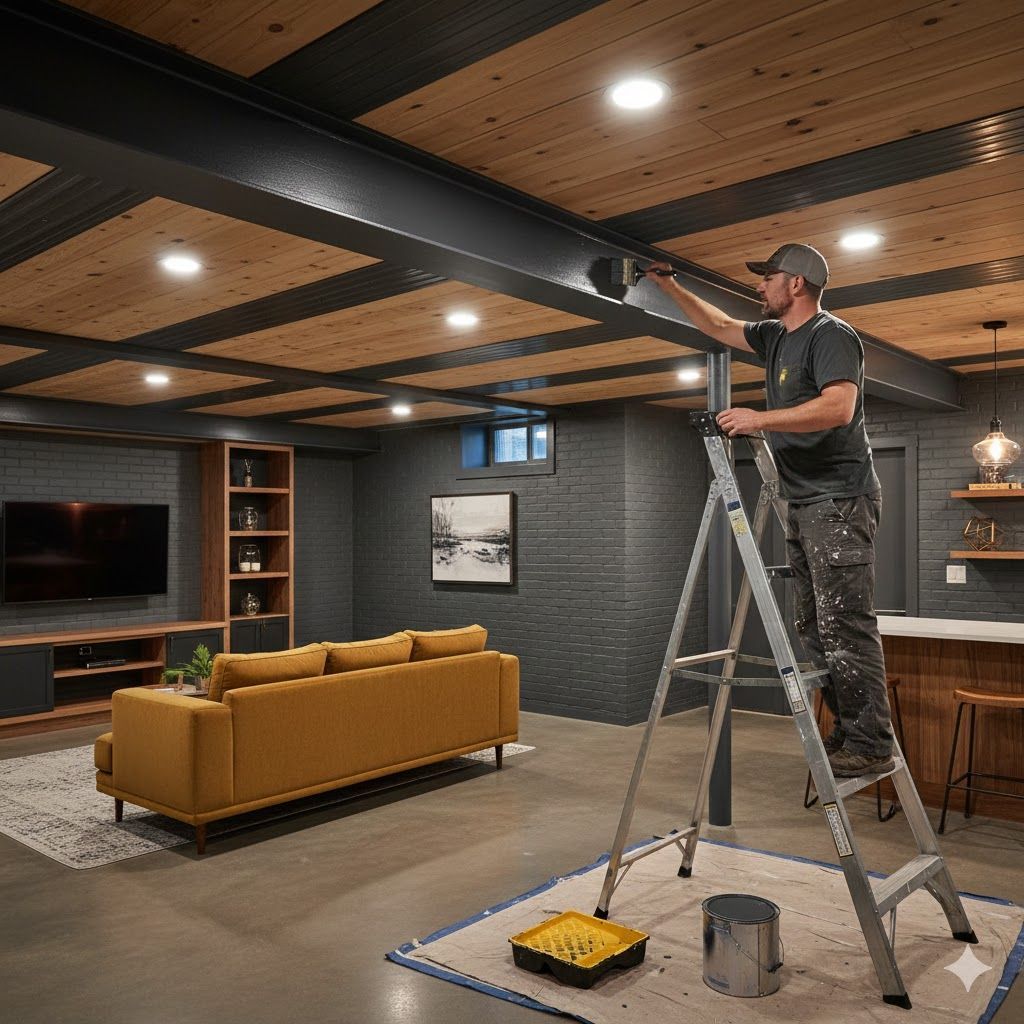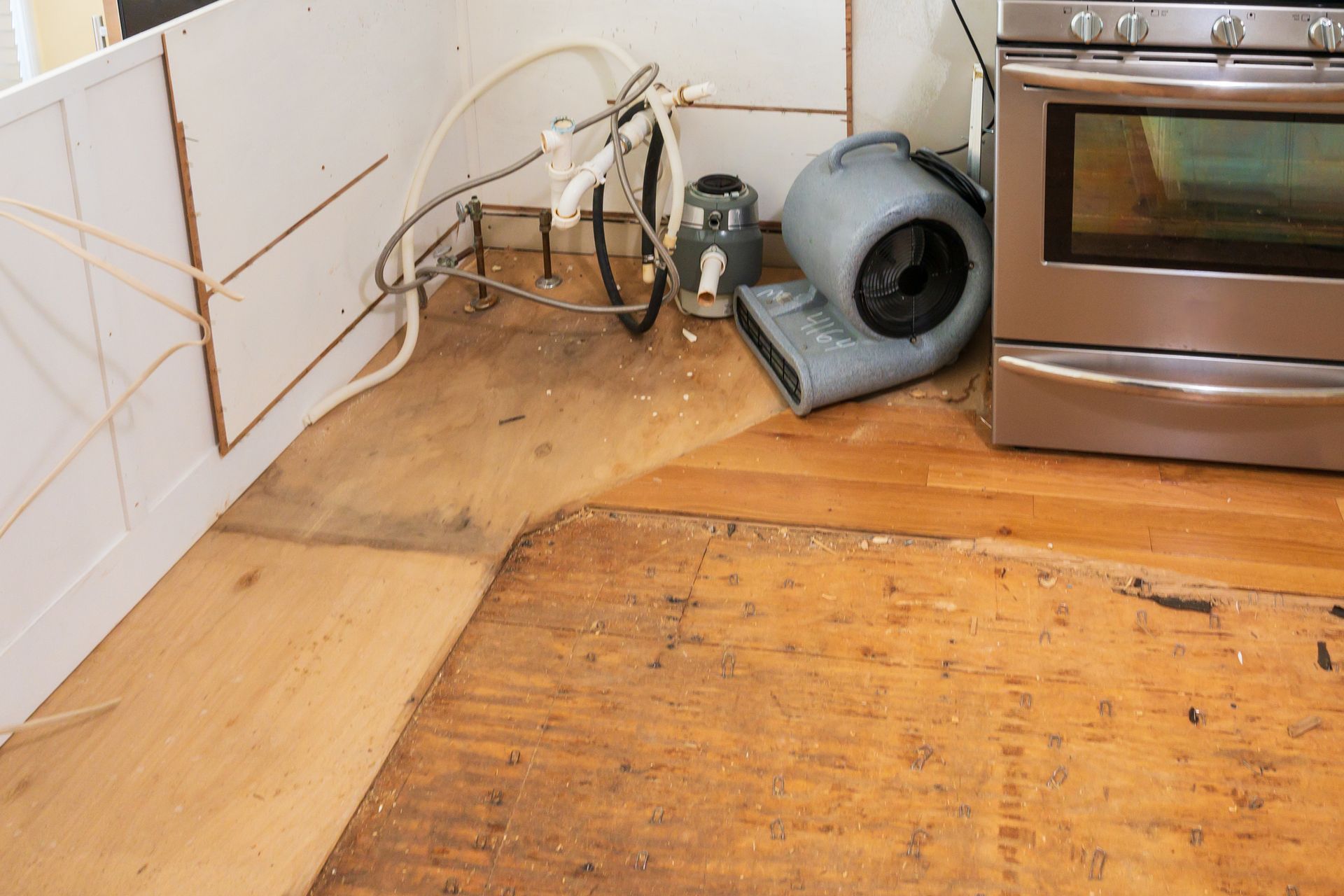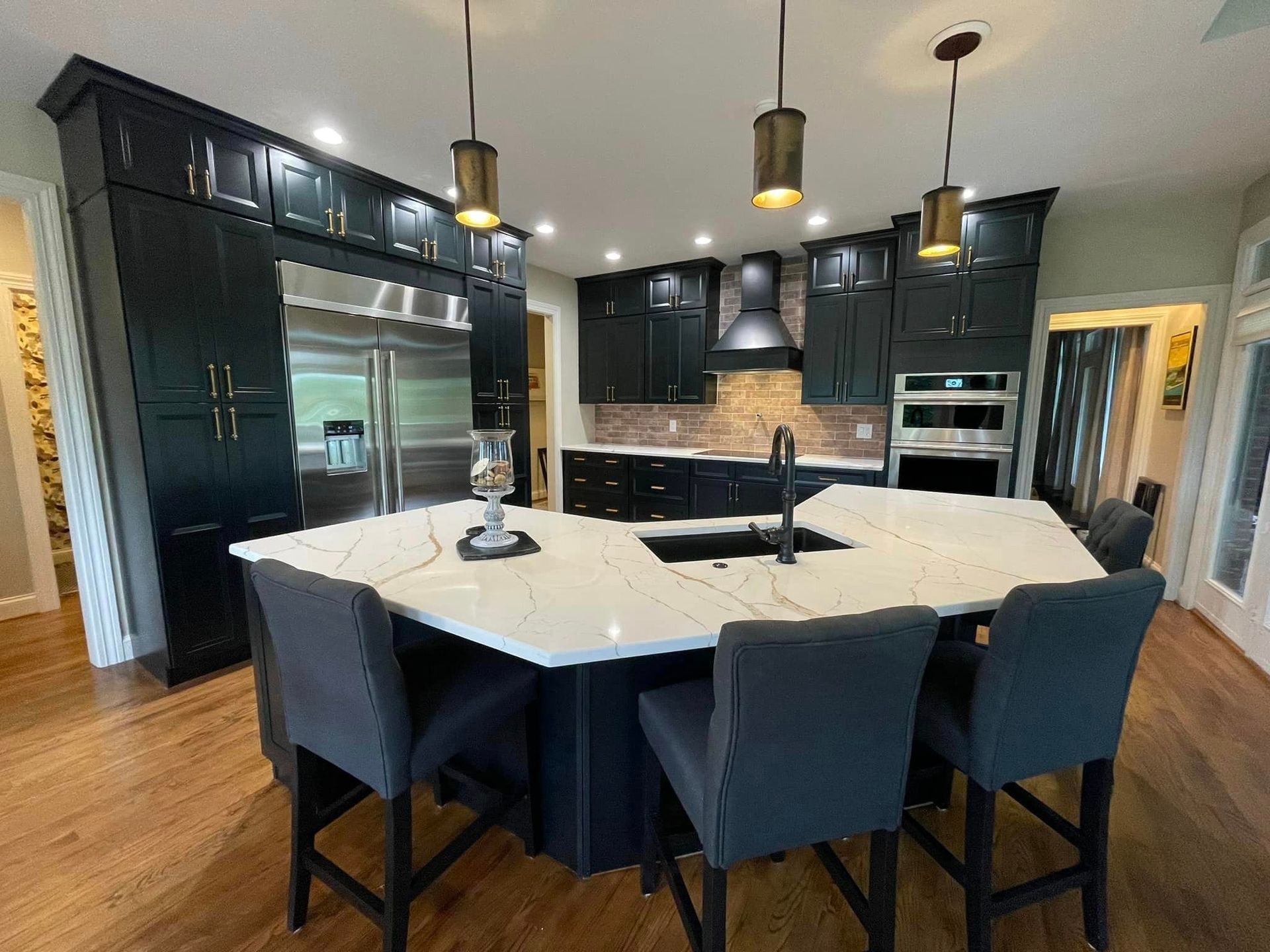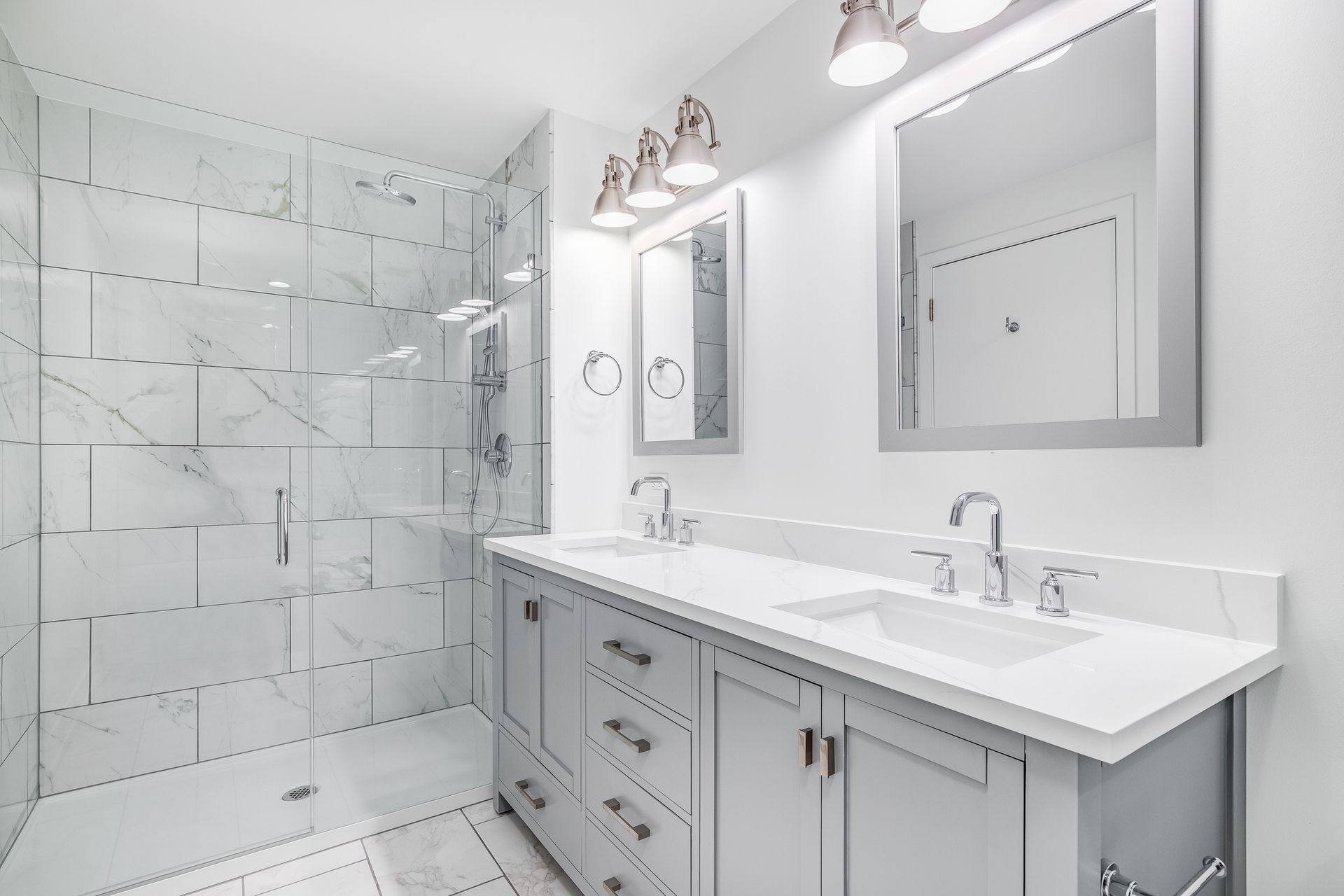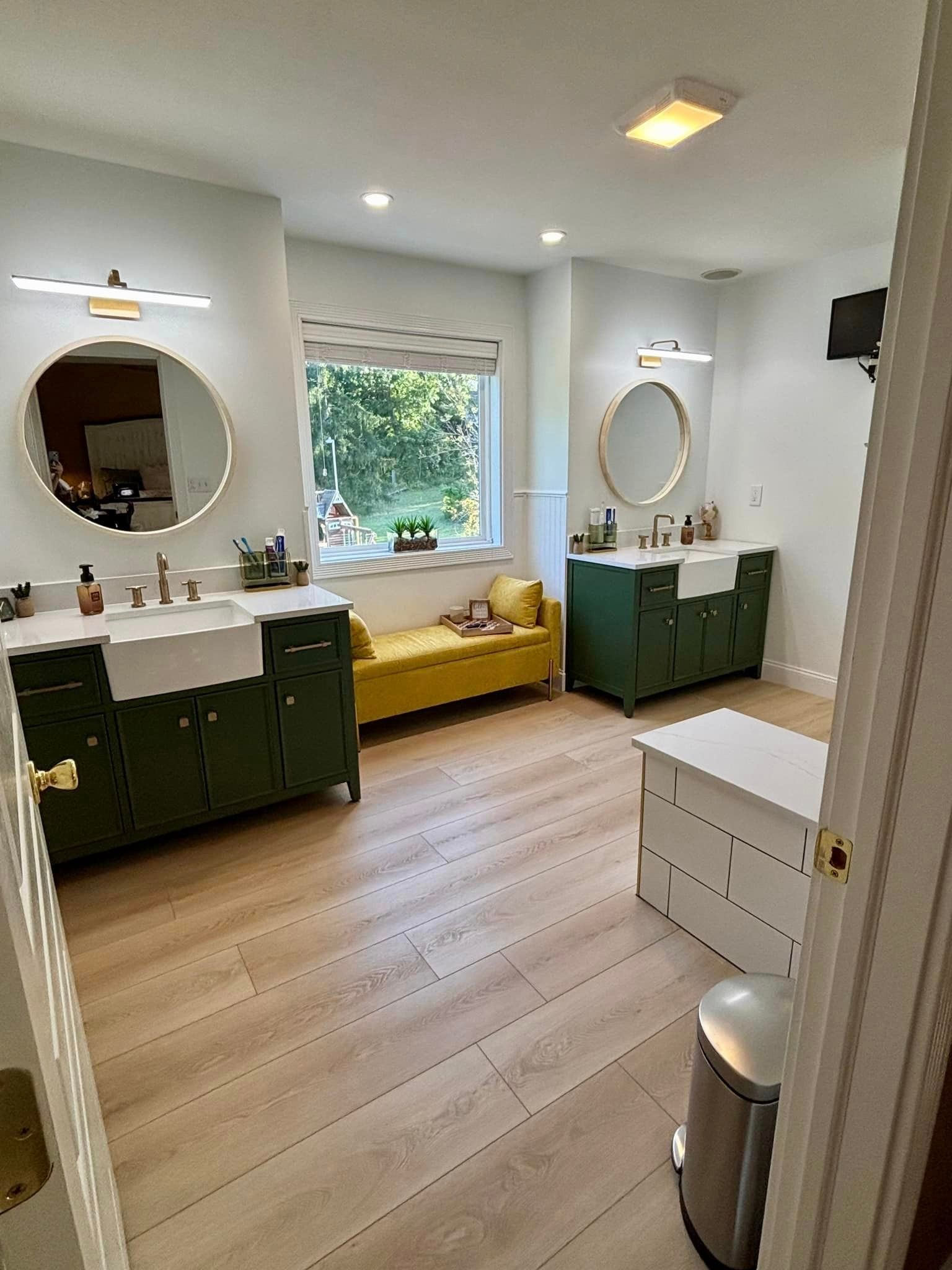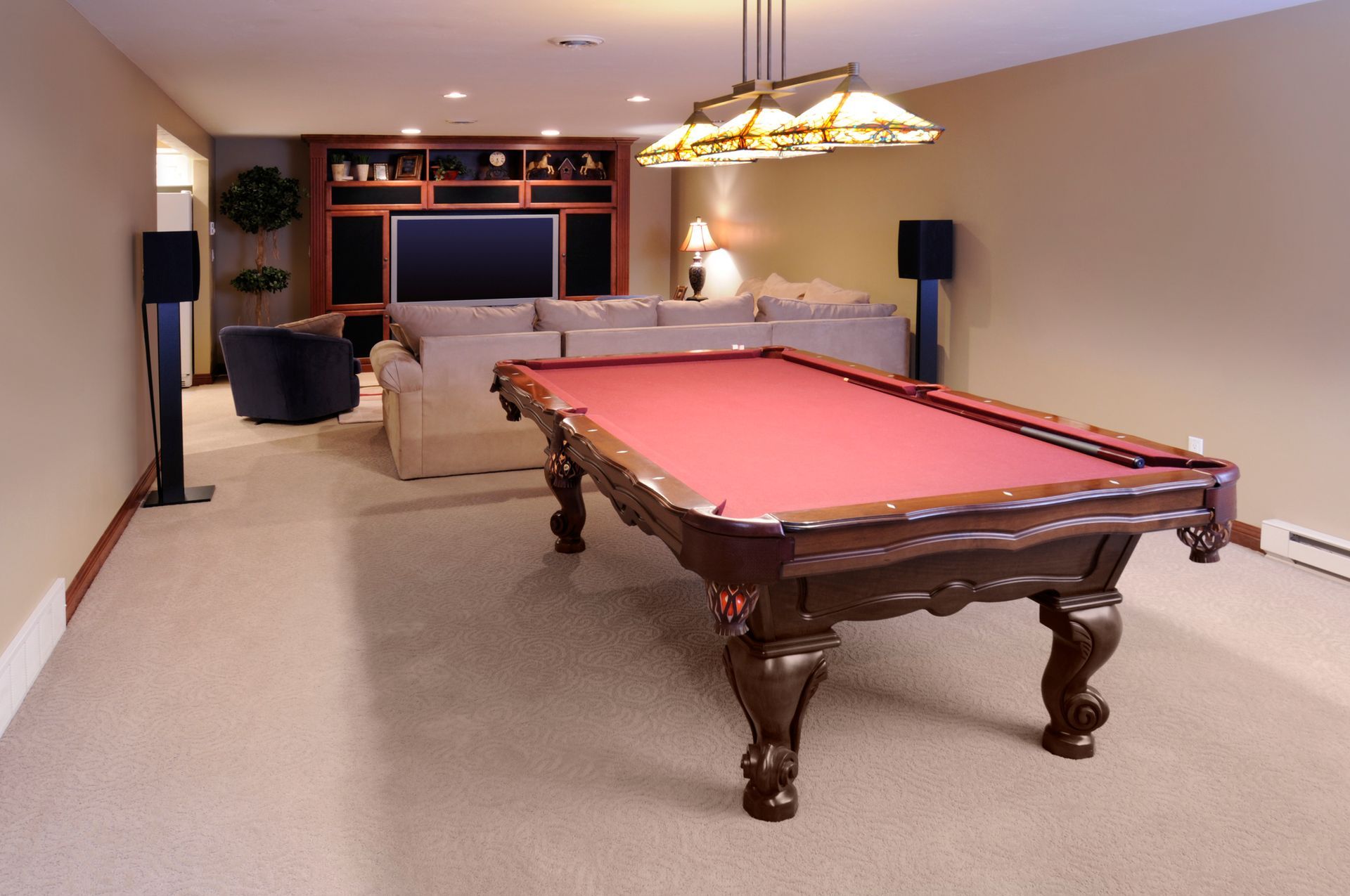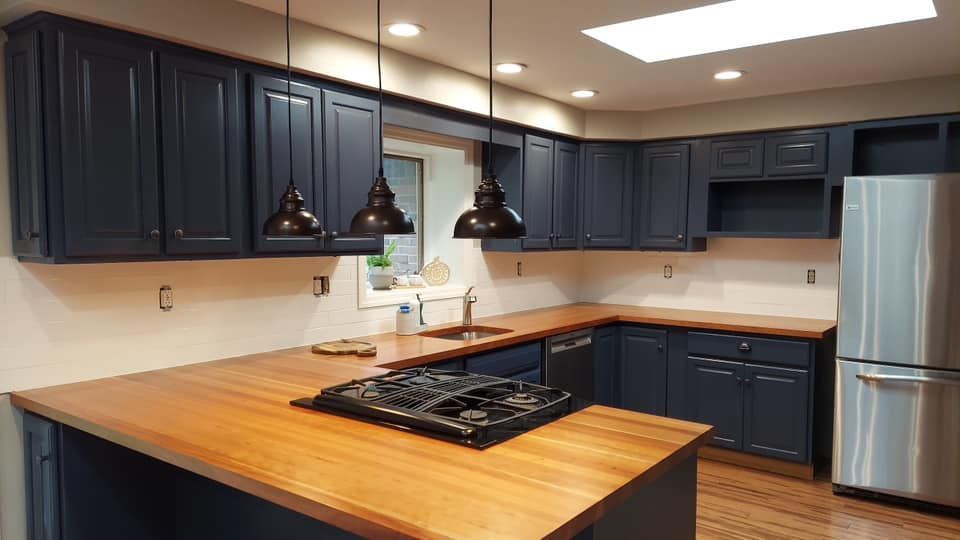What's The Difference Between Modern & Traditional Kitchens?
The kitchen is often referred to as the heart of the home, where culinary greatness happens, and families gather to share meals and create memories. Over the years, kitchen design has evolved significantly, reflecting changes in technology, materials, and our way of life.
Today,
homeowners have many choices when remodeling their kitchens, often narrowing down to two primary styles: modern and traditional. In this post, we'll explore the key differences between these two popular design choices, helping you decide on your next kitchen remodel with Obringer's Painting & Remodeling.
Defining Modern and Traditional Kitchens
Modern kitchens have sleek, minimalist aesthetics, emphasizing functionality and a clean look. They often incorporate frameless cabinets, innovative appliances, and a preference for monochromatic color schemes with bold contrasts. You'll find a range of the latest technology and gadgets, such as a small wine cooler, all built-in to the kitchen area to save space for a sleek look.
Traditional kitchens, on the other hand, draw inspiration from various historical periods. They feature intricate designs, natural materials, and a warm, inviting atmosphere. These kitchens are known for their detailed woodwork, classic patterns, and harmonious, muted color palette. They are typically closed-off rather than open-plan like many modern kitchens. Traditional kitchens offer a classic look that remains trendy for years to come.
If you have an older home , you may be wondering
if a modern kitchen will work with your more traditionally styled house. Good news! Obringer's has tips for that as well!
Kitchen Cabinet Colors Found in Traditional Kitchens vs. Modern Kitchens
When it comes to kitchen cabinets, color plays a major role in setting the tone for the entire space. In
traditional kitchens, you'll find a variety of rich, warm colors such as cherry wood, mahogany, or walnut. These darker tones create a cozy, elegant ambiance that in many cases exudes sophistication and timeless appeal, but beauty is in the eye of the beholder, so modern kitchens have made some changes.
Modern kitchens tend to favor brighter, bolder colors such as white, black, or even vibrant shades of blue or green. These colors add personality to the space and complement the sleek, contemporary design.
Design and Layout Differences
The layout of your kitchen significantly impacts its functionality and flow.
Modern kitchens adopt an open-plan layout, maximizing space and promoting a more social environment. Storage solutions in modern designs are ingenious, often hidden to maintain a clutter-free appearance.
Traditional kitchens usually have a more compartmentalized layout, focusing on the space's coziness and warmth. Storage is plentiful but integrated within ornate cabinetry, showcasing craftsmanship and attention to detail.
Materials and Aesthetics
When it comes to materials, modern kitchens often lean towards man-made, such as stainless steel, concrete, and glass, reflecting a cutting-edge, industrial vibe. In contrast, traditional kitchens prefer natural materials like wood and stone, offering a timeless elegance.
The color schemes of these kitchens also differ greatly.
Modern designs favor bold and contrasting colors, while
traditional kitchens employ a softer, more natural range of hues, creating a welcoming and homely feel.
Technology Integration in Modern Kitchens
One of the hallmarks of modern kitchen design is the integration of technology. Smart appliances, touchless faucets, and lighting systems controlled via smartphones are examples of how technology makes modern kitchens more efficient and user-friendly.
While not dismissing technology entirely, traditional kitchens tend to focus more on traditional cooking methods and appliances.
Cost and Maintenance Considerations
Although modern kitchens may have higher initial costs due to the expense of high-tech appliances and custom storage solutions, their minimalist design often makes them more energy-efficient in the long run and easier to maintain.
Traditional kitchens may require more upkeep, especially if natural materials like wood are used extensively. However, their timeless appeal and durable craftsmanship can offer a better return on investment over time.
Personalization and Current Trends
Both styles offer ample opportunities for personalization. Modern kitchens can be customized with the latest gadgets and innovative materials, while traditional kitchens can be tailored through unique finishes, hardware, and decorative molding.
Current trends in kitchen design include a blend of both styles, where homeowners select elements from each to create a customized space that reflects their taste and lifestyle. This trend is especially popular with transitional kitchen designs, which combine modern kitchens' simplicity with traditional ones' warmth and charm.
How to Choose Between a Traditional Style or Modern Style Kitchen
Choosing between a traditional or modern kitchen ultimately depends on personal preference and lifestyle. Some prefer the sleek, organized feel of a modern kitchen, while others gravitate towards the warmth and charm of a traditional design.
When deciding which style is right for you, consider your cooking habits, family size, and budget. Remember, you don't have to stick to just one style—mixing elements from both can result in a unique and personalized kitchen.
Can I Remodel My Kitchen Myself?
While DIY kitchen remodels are possible, working with a professional contractor is always recommended for the best results. Designing and remodeling a kitchen involves many technical aspects, such as plumbing and electrical work, that require specialized knowledge and experience. Without the help of a professional, you may end up with costly mistakes and potential safety hazards.
In addition, working with a professional can ensure that your kitchen is stunning but also functional and safe.
Why Choose Obringer's Painting & Remodeling?
Choosing between a modern or traditional kitchen is a significant decision that can influence the look and feel of your home. Working with Obringer's Painting & Remodeling offers numerous advantages over DIY remodeling, including professional design services, access to high-quality materials, and expert craftsmanship.
Our team understands the complexities involved in kitchen remodeling services and is dedicated to bringing your vision to life, ensuring your new kitchen meets and exceeds your expectations. Whether you're drawn to the sleek, efficient appeal of a modern kitchen or a traditional design's warm, classic charm, Obringer's Painting & Remodeling guides you every step of the way.
In summary, whether you prefer the sleek and innovative modern kitchen or the cozy and timeless traditional style, understanding these differences is crucial to creating a space that suits your aesthetic and functional needs.
When you're ready to take the next step in your kitchen remodeling project, consider the expertise and personalized service offered by Obringer's Painting & Remodeling. With our dedication to quality and customer satisfaction, we're here to help you create the kitchen of your dreams.

Author: Derek Obringer
Owner & Founder of Obringer's Painting and Remodeling, Derek Obringer brings attention to detail, together with experience, and superior customer service into each and every home that his company does work.
Painting And Remodeling Blog
